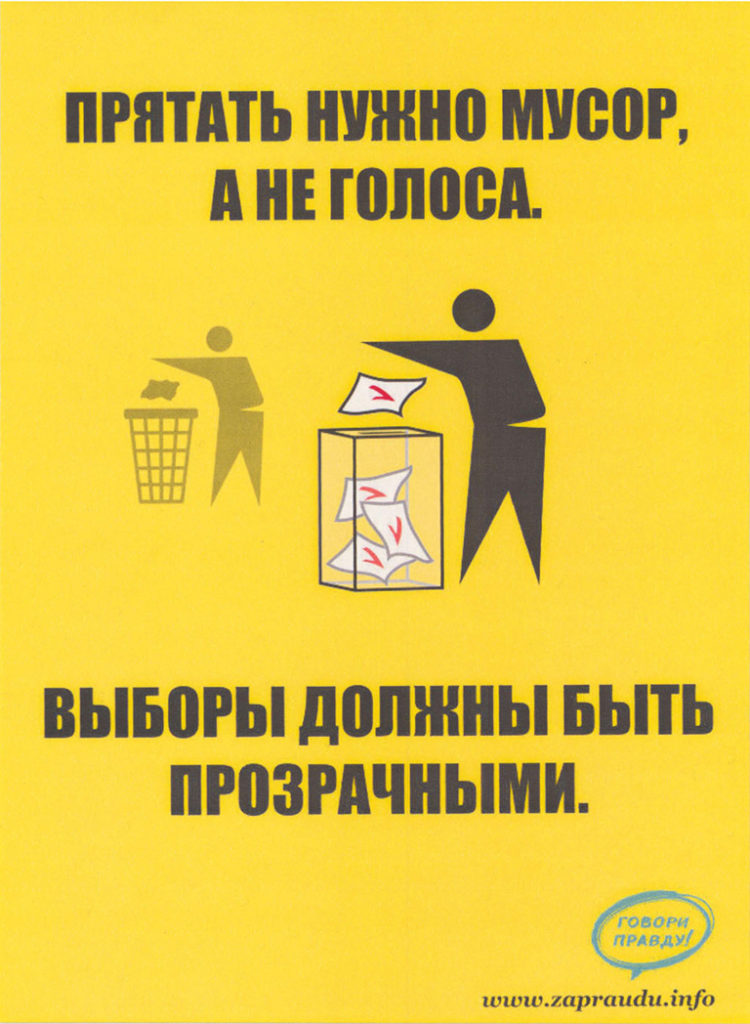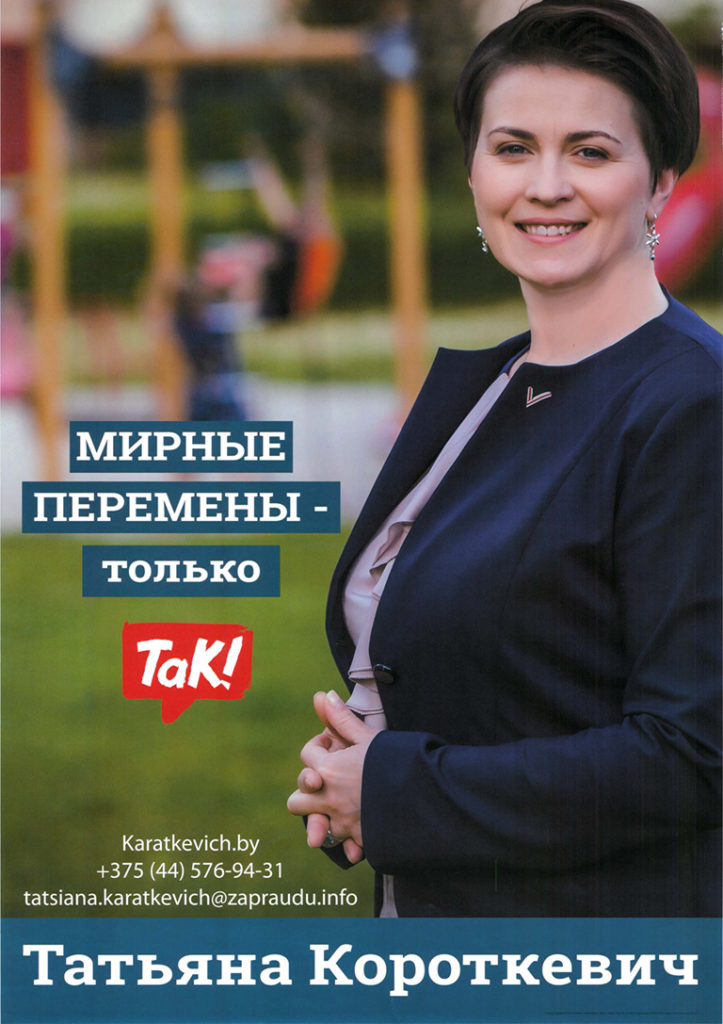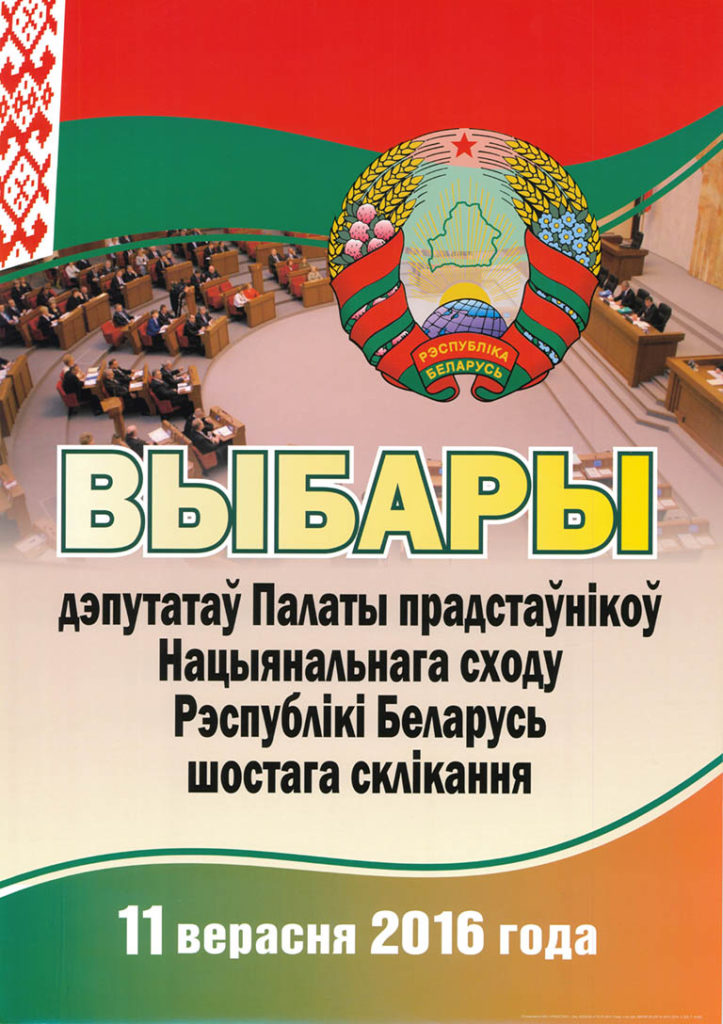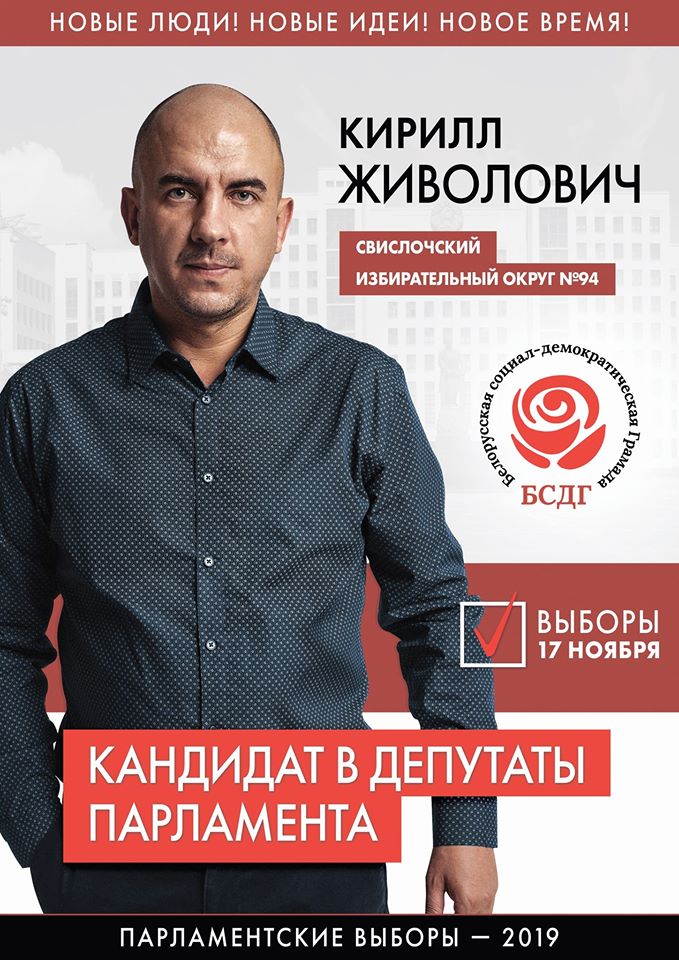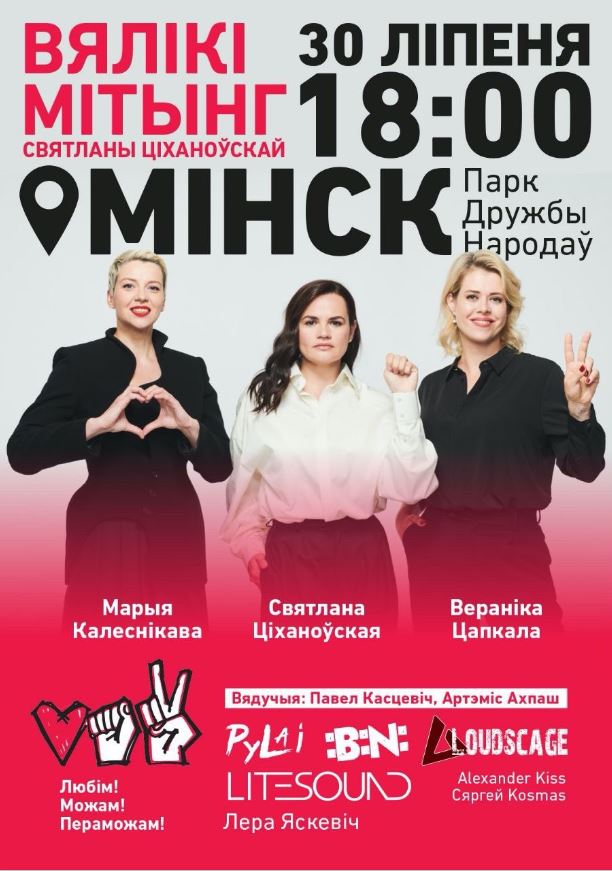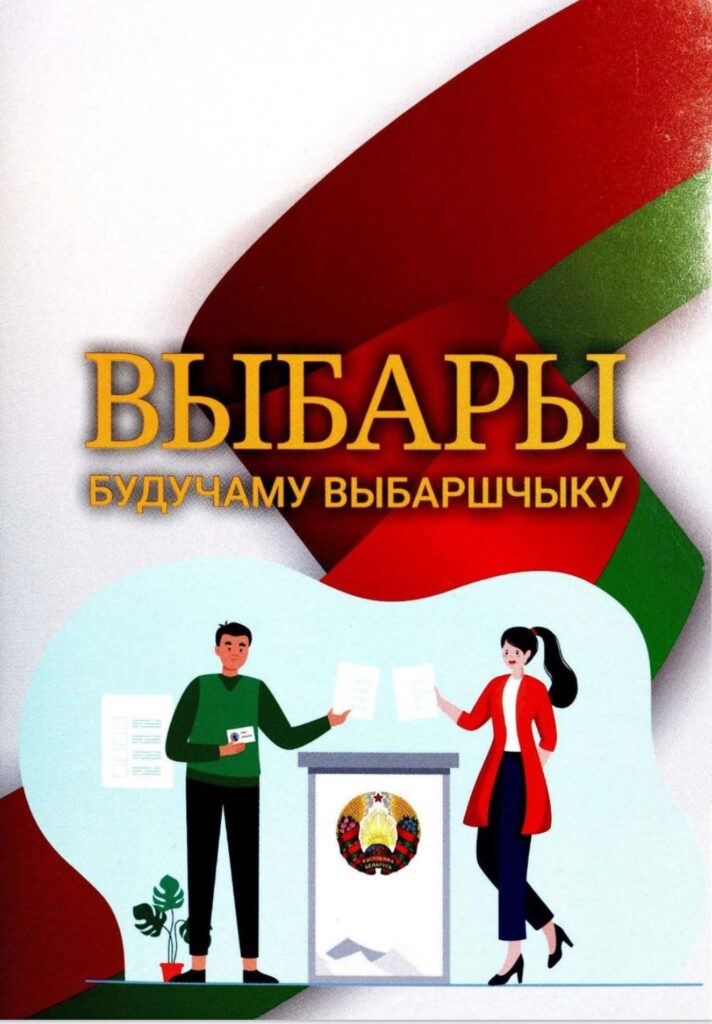Presidential Election, 2020
The August 9, 2020 Belarusian presidential elections were perhaps the most hotly contested elections in the country’s modern history with much at stake both in its domestic political dimension and in the country’s foreign policy orientation. From the very outset the election campaign was marred by irregularities and the heavy reliance by the incumbent Alexander Lukashenko on the use of administrative resources to curtail or otherwise derail inconvenient candidacies. However, Mr. Lukashenko’s fiercest challenge appeared from a most unexpected place. Sviatlana Tsikhanouskaya, the diminutive English language teacher and human rights activist, was an unlikely candidate to take up the mantle of the Belarusian opposition to Lukashenko’s rule. Relatively unknown before the elections, with a husband arrested for human rights activism, she quickly gained following and popularity among some of the most active opposition groups in the country.
Although Tsikhanouskaya and her followers came close to achieving their wish (she would subsequently claim a win by a popular vote), Lukashenko’s repressive tactics made sure their wish would remain just that. Even before the official results were announced the opposition staged massive protests in Minsk and throughout Belarus in anticipation of electoral foul play. The ensuing months-long political crisis would see the self-exile of Tsikhanouskaya to Lithuania from where she continues to oppose Lukashenko’s rule.
The present collection is comprised of hundreds of pages of official documents and a variety of ephemera and photographs produced by the Belarusian opposition as it strove to challenge Lukashenko’s decades-long rule.
